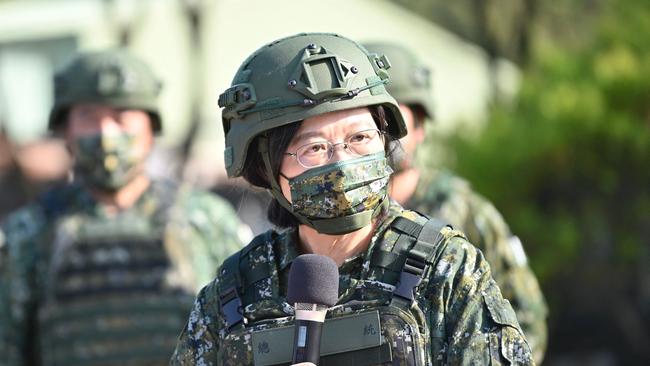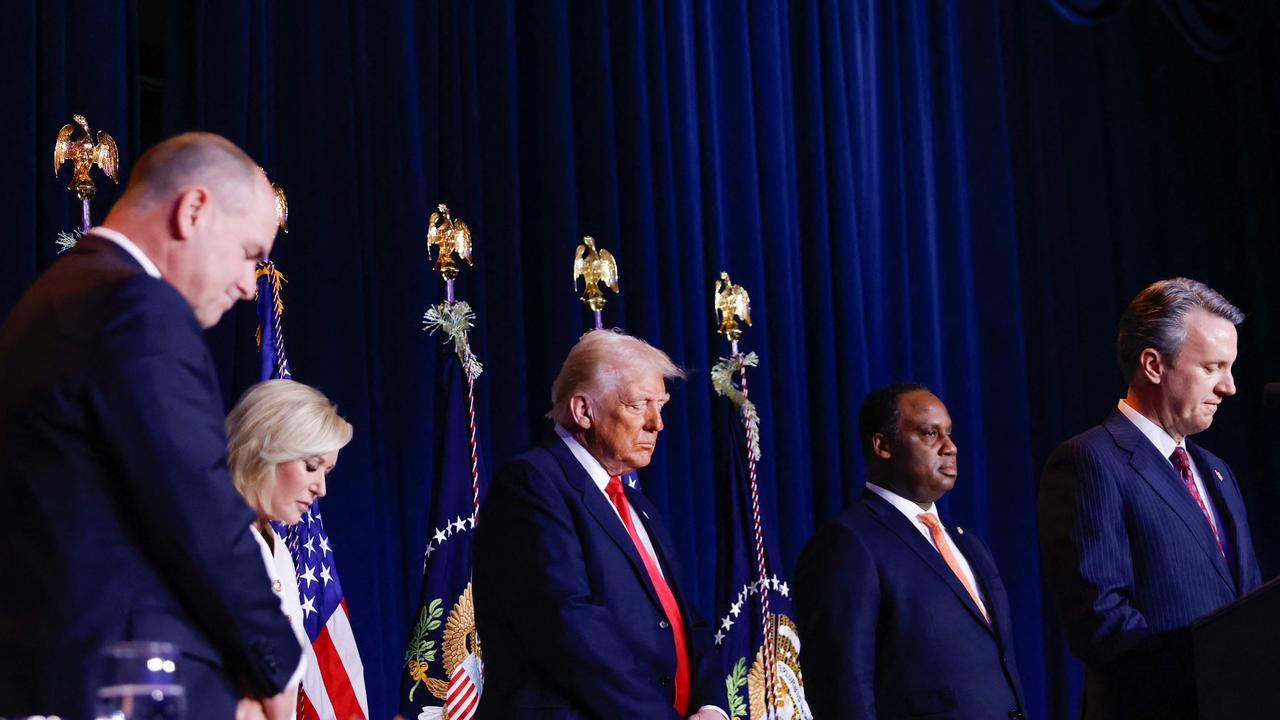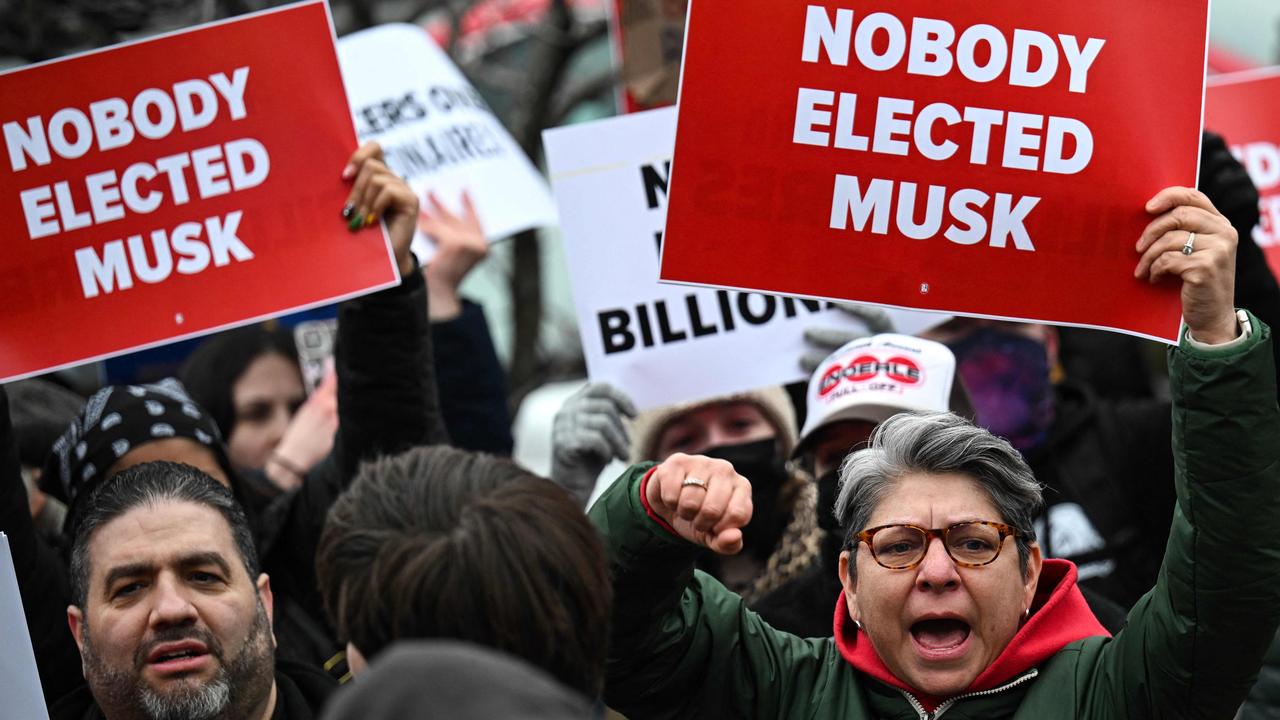Ukraine invasion to give Taiwan ‘four-year reprieve’ from China attack
The island’s security chief believes it is safe from attack from China for the remainder of Tsai Ing-wen’s presidential term.

China will delay any attempted takeover of Taiwan by at least four years as a direct result of Russia’s failing campaign in Ukraine, according to the head of the island nation’s security bureau.
Chen Ming-tong said on Tuesday he believed Taiwan was safe from attack for the remainder of Tsai Ing-wen’s presidential term, which ends in 2026. “The lesson of Ukraine for Beijing is that it should not easily wage a war,” Mr Chen said.
“Beijing will study Russia’s deficiencies and improve the People’s Liberation Army. Should it launch a war, it would be a comprehensive one, and Taiwan must assess Beijing’s intentions with the broadest scope of possibilities. We are not here waiting passively and sitting idly.”
Mr Chen was referring to a build-up of defences on the island and a recent decision to extend compulsory military service beyond the four months.
Taiwan’s unification with the mainland is part of President Xi Jinping’s plan to “revive” the Chinese nation by 2050.
The comparison to the war in Europe has irked Beijing, which argues the status of Taiwan is a “domestic affair”, whereas Ukraine is a sovereign nation, recognised internationally. In the US, however, Taiwan’s precarious situation remains a cause for concern. Marco Rubio, the top Republican on the Senate intelligence committee, told The New York Times this week: “It does us no good to pretend (China) is not an adversary. Their goal is to rise at the expense of the United States.”
He said China’s growing reach could be seen in a campaign of economic espionage and infiltration of American institutions, as well as a rapid build-up of nuclear and conventional forces that “menace Taiwan”.
China is exploring the development of a high-speed missile train to transport its nuclear arsenal around the country, making it more difficult to track and destroy in the event of a war between superpowers.
The research into the “doomsday train” is a signal to analysts the country is exploring new strategies for war as it modernises its military and expands its nuclear capability. Satellite images show that it has built a 500sq/km silo complex in the desert near the city of Hami, in the far-west region of Xinjiang.
Senator Rubio believes China’s “military might, ideological challenge to democracy, technological ambitions, and influence over the global market pose an even more serious and systematic threat than the Soviet Union ever did”.
Mr Chen said Taiwan was confident Washington would respond if China attacked it: “If the US can be involved to such a degree without a relations act with Ukraine, the US will only be more involved with its Taiwan Relations Act.” Under the act, the US is bound to supply the island with military hardware and technology.
The White House has been offering reassurance to Taiwan since the onset of the war in Ukraine. In early March, President Joe Biden sent a group of former senior defence officials to Taipei in a show of support. “I do hope, by being here with you, we can reassure you and your people, as well as our allies and partners in the region, that the United States stands firm behind its commitments,” Mike Mullen, a former chairman of the joint chiefs of staff, told Ms Tsai.
On Tuesday, after meeting Singapore’s Prime Minister Lee Hsien Loong at the White House, Mr Biden said: “Even as we address the crisis in Europe, my administration is strongly supportive of moving rapidly to implement the Indo-Pacific strategy … and the United States is a proud Indo-Pacific nation.”
Before the Ukraine war, the threat of a Chinese invasion of Taiwan had been rising. This month, however, a whistleblower in Russia’s FSB security service claimed Mr Xi’s invasion plans had been put on hold, which closed the “window of opportunity” for military action.
Australia, like other Western allies, is taking nothing for granted: the federal budget announced on Tuesday includes a $10bn national security package that will allow its electronic spy agency to “keep pace with the rapid growth of cybercapabilities of potential adversaries”. The Australian Signals Directorate is to gain almost 2000 staff, increasing the country’s contribution to the Five Eyes intelligence-sharing arrangement between Britain, America, Canada, Australia and New Zealand.
The Australian Cyber Security Centre reported in September that “state and criminal cyber actors” possessed the capability to disrupt critical infrastructure and were increasingly doing so. It gave as an example a cyber attack on Microsoft in July that was said to have affected thousands of computers and networks worldwide. The Chinese government dismissed as “groundless” allegations by Australia, the UK and the US that it was involved.
The Times


